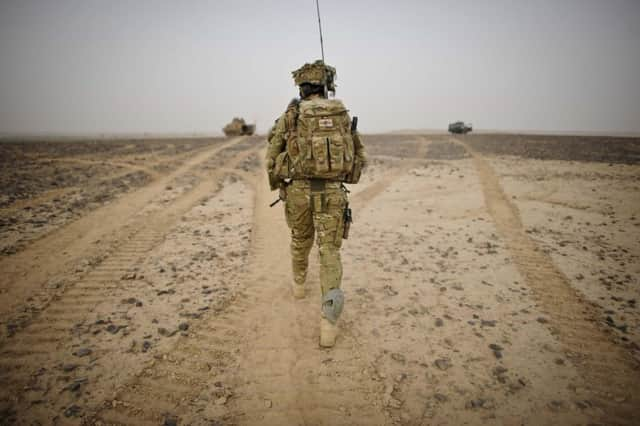Greg Wright: The shameful discrimination facing military veterans


At the very least, your country should repay this loyalty by giving you the chance to prosper in civilian life.
Former servicemen and women should make model employees, because they’ve shown they can flourish in some of the toughest working environments imaginable.
Advertisement
Hide AdAdvertisement
Hide AdSadly, it seems many female veterans are facing a host of sexist hurdles when they decide to take a job outside the military. The frustrations they face must make us question whether we really value women who play vital roles in keeping our country safe from external threats.
Research carried out by Barclays found that 42 per cent of female veterans believed they weren’t offered an interview, or even given the opportunity to progress through the application process, because of their military background.
It seems there is widespread ignorance about the types of skills former service men and women can take with them into civilian life.
A third of the female veterans who responded to the survey said they had been asked an inappropriate question in a job interview. Some of them were asked whether they knew how to act and dress in a feminine way.
Advertisement
Hide AdAdvertisement
Hide AdSome interviewers, it seems, still believe we’re living in the 1950s.
Incredibly, 22 per cent of the female veterans said they had also been asked about how they would feel working in a male-dominated environment. Nineteen per cent of them were also asked if they’d ever handled a firearm.
Research from the Barclays AFTER (Armed Forces Transition, Employment & Resettlement) Programme shows that people leaving the military will often face prejudice in the civilian job world, with women experiencing far more obstacles than their male counterparts.
On average, it takes former service personnel four months to find a civilian job. If you’re a female veteran, that figure rises to an average of five months.
Advertisement
Hide AdAdvertisement
Hide AdThe study found that 44 per cent of female veterans have carried out extra training when looking for civilian roles, compared with 28 per cent of men, which shows women feel they are being obliged to try harder in order to find work.
The report added: “In fact, at every stage of the job hunting process, female veterans are going above and beyond to make sure that their applications are successfully received – sending nearly double the number of CVs and attending more interviews and work placements than either their male or civilian colleagues.”
To quote Rachel Scandling, a Royal Navy veteran: “During my initial job search, I found that military experience didn’t necessarily carry the credibility you would expect with civilian employers; many didn’t understand the unique skills that we bring.
“For me, one of the most challenging aspects of my career shift was overcoming stereotypes to communicate my skills to employers who lacked a true understanding of military experience.
Advertisement
Hide AdAdvertisement
Hide Ad“I’d never written a CV before leaving the forces, and so it took me more than six months to draft a version that I felt fully articulated my skill set.
“I reached out to many service leavers within my network for support and mentoring; this was invaluable in understanding their journeys and the challenges they had faced. “
It’s worth noting that men who have served in the armed forces also face crass questions when they apply for a job outside the military. A third of those questioned as part of the survey reported that they had been asked if they had ever shot or killed somebody. Over the years. I’ve met many former services personnel - male and female - who have brought courage and vision to a civilian working environment.
They are the ultimate team players, because they are flexible, composed under pressure, and always looking for new challenges. It seems incredible that women who have served their country should encounter such prejudice. The victims shouldn’t hesitate to take legal action to ensure their rights are respected.